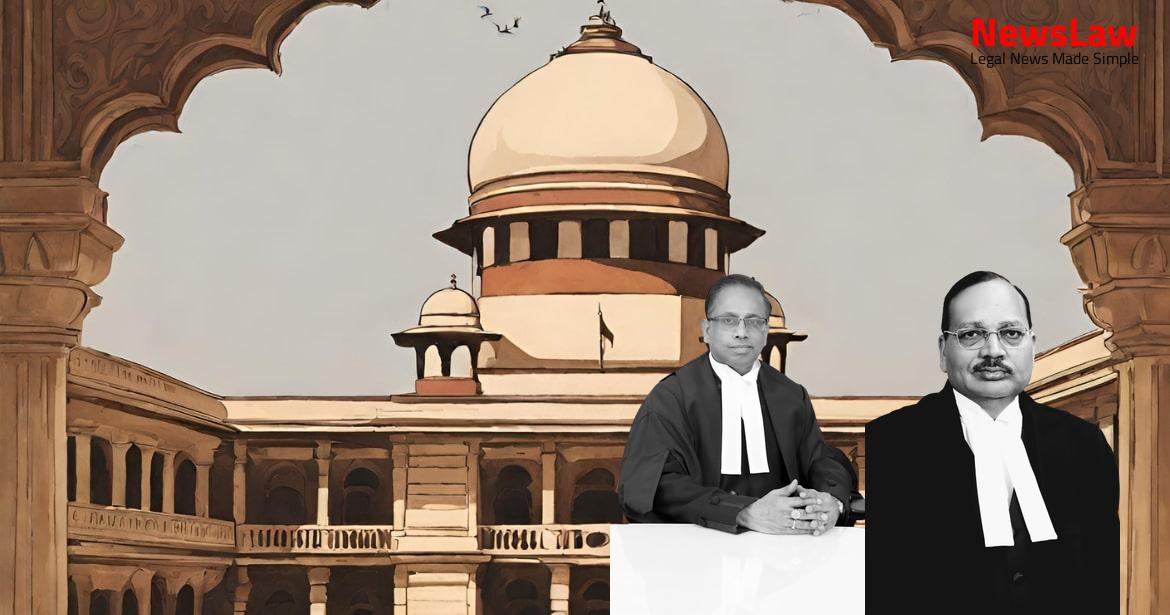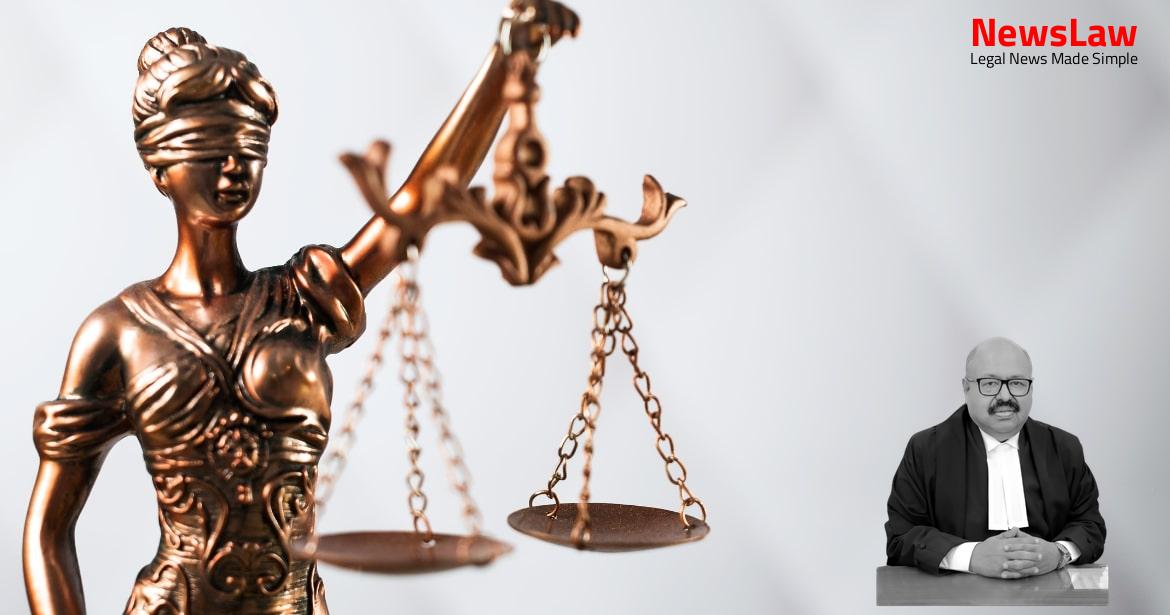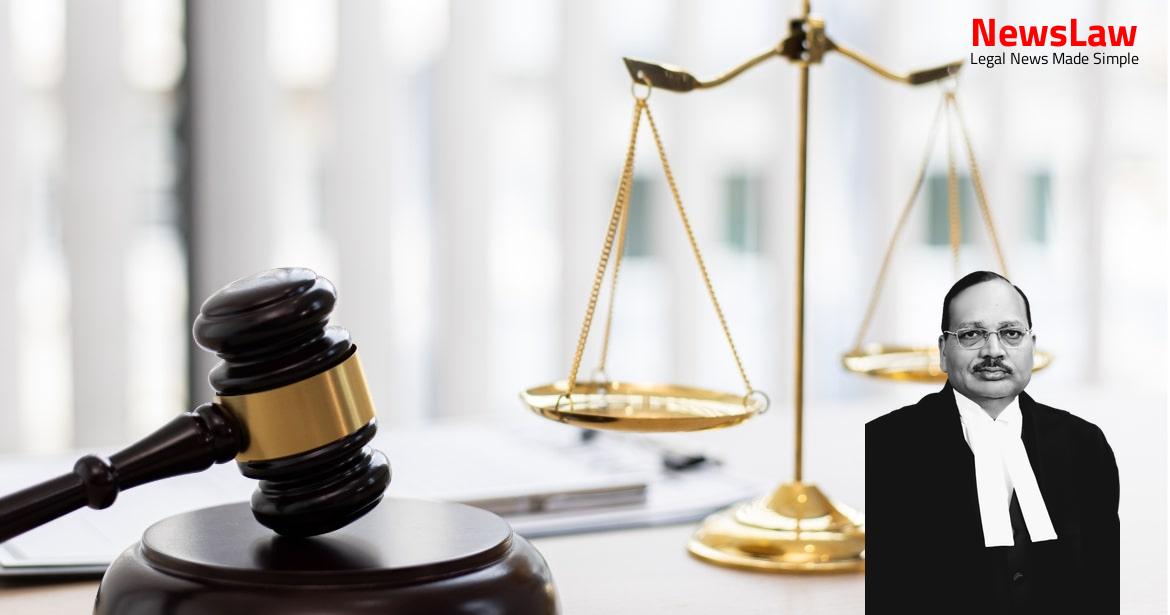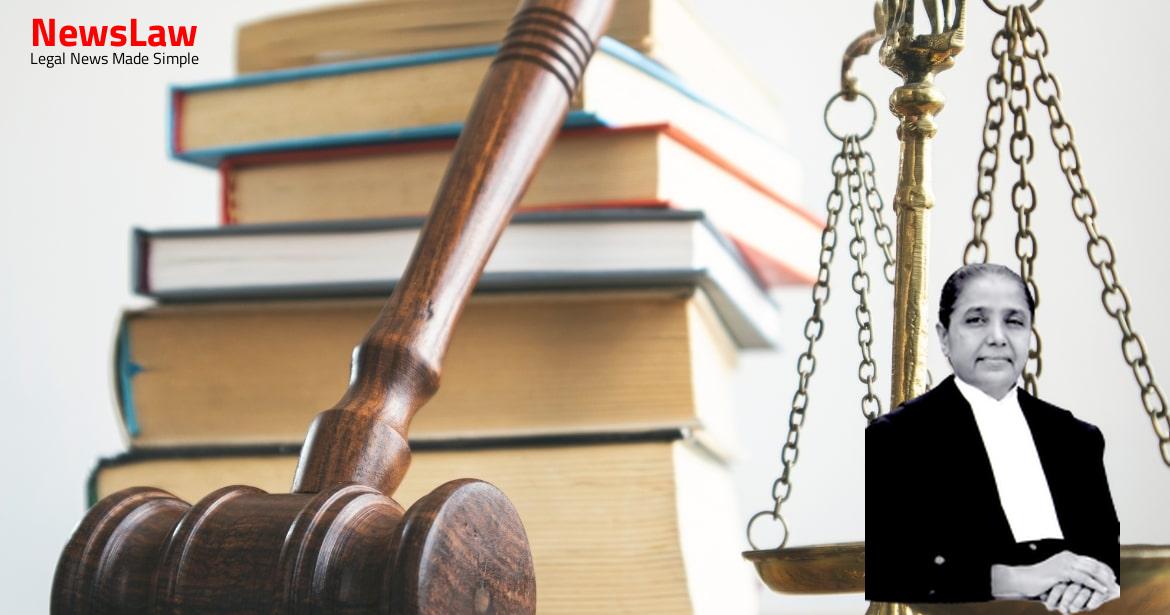In the case of R.C. Sabharwal vs. Income Tax Department, the Tribunal reviewed additions and deletions made by the Assessing Officer and the CIT (Appeals) regarding income from various enterprises, companies, and trusts. The appeal involved charges framed under Section 13 of the Prevention of Corruption Act, 1988, with R.C. Sabharwal and Puneet Sabharwal as appellants. Find out more about the recent developments in the case.
Facts
- The Tribunal considered the addition carried out by the Assessing Officer in the hands of R.C. Sabharwal with respect to income of M/s Morni Devi Brij Lal Trust.
- The Tribunal found that the Assessing Officer’s presumption that bearer bonds were acquired by the trust was not correct.
- The Special Bearer Bonds encashed in the trust’s account were purchased before the formation of the Trust itself.
- The CIT (Appeals) ruled that the Trust would qualify as a person as per the Special Bearer Bonds (Immunities and Exemptions) Act, 1981.
- Once the assessment was accepted and the trust’s existence acknowledged by the department, it could not be reversed without adverse material.
- The Tribunal was required to examine the additions and deletions by the Assessing Officer and the CIT (Appeals) in the base assessment year of 1996-1997, affecting subsequent years.
- The Tribunal mentioned income accruing to R.C. Sabharwal from various enterprises, companies, and trusts.
- No evidence was presented to prove that the assessee was the benami owner of the trust.
- The Tribunal disposed of the appeals following these considerations.
- The High Court dismissed the Writ Petitions challenging the Order on charge dated 21.02.2006 and the charges framed on 28.02.2006 by the Special Judge, Delhi.
- Appellant Puneet Sabharwal was charged under Section 109 IPC read with Section 13(1)(e) and 13(2) of the Prevention of Corruption Act, 1988, while appellant R.C. Sabharwal was charged under Section 13(1)(e) read with 13(2) of the Prevention of Corruption Act, 1988.
- The Tribunal deleted additions amounting to Rs. 8,14,230/- and considered various other additions/deletions regarding different firms and assessees.
- The Tribunal found that R.C. Sabharwal was not obligated to explain the source of investment of the founders of the trust – Smt. Morni Devi and Sh. Brij Lal.
- The Assessing Officer accepted the explanation of the assessee on an aspect that was remitted, and the income of Puneet Sabharwal was fixed at Rs. 67,550/- in the assessment order passed on 30.12.2009.
Also Read: KNNL vs. Land Owners: Land Acquisition Compensation Dispute
Arguments
- The prosecution argued that appellant R.C. Sabharwal owned assets worth Rs. 2,05,63,341 which were disproportionate to his known income of Rs. 1,23,18,091.
- During the framing of charges, the court should only consider the material available at that time and not delve into the probative value of evidence.
- The court is not conducting a mini trial at the stage of framing charges; it only needs to determine if there are grounds for presuming the offense.
- Even a strong suspicion based on material can justify the framing of charges.
- The order of the Income Tax Appellate Tribunal cannot be the basis for discharging the accused and is not binding on criminal proceedings.
- The High Court has the power to look at material presented by the accused in arriving at its decision for discharge.
- The Income Tax Appellate Tribunal order held that there was no case to add the income and assets of entities to R.C. Sabharwal’s income.
- The charge against appellant Puneet Sabharwal was based on being named as a beneficiary in a trust deed, and the court erred in considering him responsible solely due to his father’s actions.
- Appellant Puneet Sabharwal being a minor for a large portion of the check period was argued as a reason to discontinue the criminal trial.
- Reliance was placed on various cases to argue that exoneration on merits in a civil adjudication should lead to the discontinuation of criminal prosecution based on the same facts.
- The ASG strongly refuted the appellant’s arguments and stated that the Income Tax Appellate Tribunal order alone should not result in the quashing of proceedings or discharge of the accused.
- The findings of the Income Tax Authorities are not binding on a criminal court, and the legality of the source of income cannot be readily accepted based on tax authorities’ decisions.
- Arguments in the case of appellant R.C. Sabharwal were primarily based on the Income Tax Appellate Tribunal order of 31.08.2007, which held that the income from various properties was wrongly added to his income.
- The reassessment for thirteen years was carried out on the complaint of CBI, and the courts below were criticized for misapplying the judgment in Selvi J. Jayalalitha case.
- The learned ASG prayed for dismissal of the charges and appeals
- Argument made that since tax proceedings ended in favor of the appellants, a criminal prosecution on the same facts should not continue
- Reliance placed on the decisions in Radheyshyam Kejriwal, Ashoo Surendranath Tewari, and J. Sekar to support the argument that exoneration in civil adjudication should prevent a criminal prosecution
Also Read: U.P. Avas Evam Vikas Parishad v. Chandrika & Ors.
Analysis
- Anantharam Veerasinghaiah & Co. v. CIT case involved an Abkari contractor whose return was rejected due to excess expenditure and deposits made in others’ names.
- The power to quash a proceeding must be exercised cautiously and evidence from income tax returns or orders must be evaluated with other materials.
- Income tax returns are not conclusive proof in criminal proceedings; burden of proof differs in penalty proceedings from assessment proceedings.
- In Radheshyam Kejriwal case, prosecution under Foreign Exchange Regulation Act was discussed.
- J. Sekar case involved criminal proceedings based on information from Income Tax Department which later led to closure due to lack of evidence.
- In the context of Section 13 of Prevention of Corruption Act, income tax returns alone are not conclusive proof of lawful sources of income.
- Judicial consideration is required even in cases of strong suspicion to frame charges against an accused person.
- The court reviewed the records and arguments of both parties regarding interference with the order on charge dated 21.02.2006 and the order of framing charge dated 28.02.2006.
- The income tax returns and orders passed in the proceedings are not conclusive proof of the lawfulness of the accused persons’ income sources as required by Section 13(1)(e) of the Act.
- The High Court quantified the amount of gifts based on income tax returns and the orders of the authorities, but these cannot conclusively prove the charge.
- The inquisition in Paragraph 309 refers to the criminal court’s examination, and the proceedings under the Prevention of Money Laundering Act were found to be unsustainable based on income tax information.
- The decisions in Radheyshyam and Ashoo Surendranath cases were not considered applicable as the probative value of Income Tax Authorities’ orders is not conclusive for discharging the accused.
- The court emphasized that while income tax records may be admissible, their probative value depends on the information and findings, and they do not conclusively prove or disprove a charge.
- There was a distinction made between the assessments for taxable income and the source of income under the Prevention of Corruption Act, indicating the need for independent evidence to account for the income sources.
- The Court emphasized the need for an inquisition on the material presented.
- In the case of J. Jayalalitha, the Court thoroughly examined previous decisions before determining the probative value of income tax returns.
- The examination included assessment orders, decisions of the Appellate Tribunal, and the High Court.
- Minority of the appellant Puneet Sabharwal not relevant as he was not a minor during the check period.
- Not required to address the argument that the Income Tax Appellate Tribunal order cannot be considered as it emerged after the charge was framed.
Also Read: Interference with Acquittal Orders: Legal Analysis
Decision
- All pending applications closed.
- Defences to be placed before Trial Court by appellants.
- Trial to be expeditiously concluded by 31.12.2024.
- No merit found in the appeals, hence dismissed.
- Observations made are only in the context of discharge proceedings.
- Interim orders vacated.
- Trial pending for nearly 25 years.
Case Title: PUNEET SABHARWAL Vs. CBI (2024 INSC 221)
Case Number: Crl.A. No.-001682-001682 / 2024



